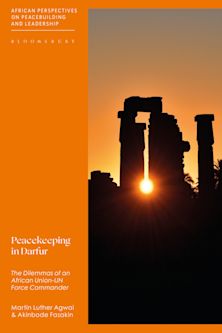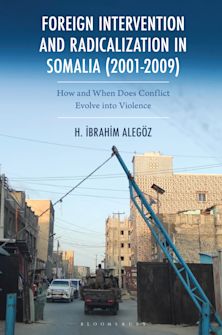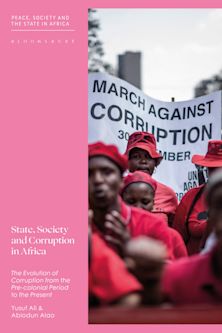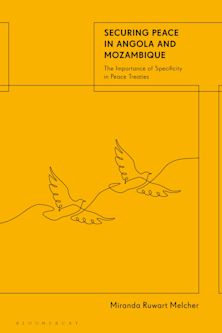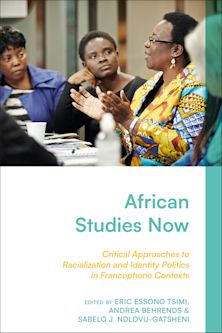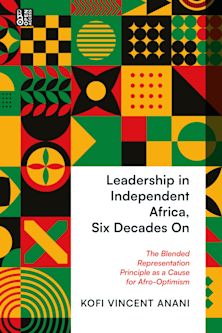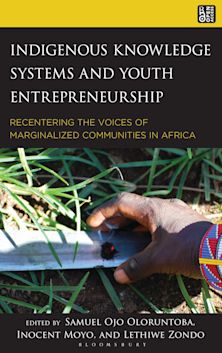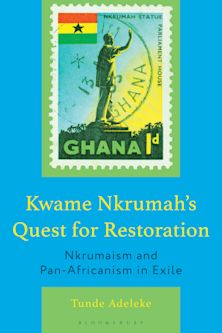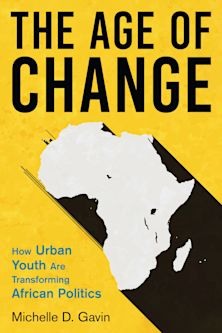- Home
- ACADEMIC
- Politics & International Relations
- African Politics
- Ghana's Foreign Policy
Ghana's Foreign Policy
Kwame Nkrumah's Normative Legacy and Pan-Africanism
Ghana's Foreign Policy
Kwame Nkrumah's Normative Legacy and Pan-Africanism
This product is usually dispatched within 1 week
- Delivery and returns info
-
Free CA delivery on orders $40 or over
You must sign in to add this item to your wishlist. Please sign in or create an account
Description
Ghana’s Foreign Policy: Kwame Nkrumah’s Normative Legacy and Pan-Africanism examines Ghana’s foreign policy in the post-independence era, focusing on the enduring legacy of Kwame Nkrumah. This book also analyzes the complexity of post-independence foreign policy decision making and the influence of the post-colonial narrative during the Cold War. In this study, Charles Asante argues that the significance and continuity of Nkrumah’s legacy is often attributed to his pan-Africanist leadership on the African continent, fervently articulating an independent African foreign policy. Leaders like Nkrumah, considered themselves as the redeemers of Africa’s political and economic vulnerability from its colonial experiences. Asante finds that, in contrast to the positive experience associated with his independence movement for Ghana, Nkrumah could not build the same kind of vision, engagement, and networks among other African nationalist leaders necessary for successful promotion of a Pan-African region. Despite Nkrumah’s own foreign policy failures in the Congo, the United States of Africa project, and his sudden overthrow in 1966, Nkrumah’s Pan-African vision is still promoted as an important foreign policy objective by Ghana’s politicians, public servants, military, and academics.
Table of Contents
List of Acronyms
Introduction
Chapter One: An Introduction to Norm Entrepreneurship
Chapter Two: The Intellectual Roots of Pan-Africanism
Chapter Three: The Emergence of Kwame Nkrumah as a Norm Entrepreneur
Chapter Four: The Ghanaian State: Post-Independence Period, 1950s?1960s
Chapter Five: Kwame Nkrumah’s Pan-African Foreign Policy: The Congo Intervention
Chapter Six: Kwame Nkrumah and the Creation of the Organization of African Unity: An Embodiment of Pan-Africanism
Chapter Seven: Kwame Nkrumah’s Demise and Foreign Policy Legacy
Conclusion
Appendix: Primary Research (Interviews)
Bibliography
About the Author
Product details
| Published | Aug 19 2024 |
|---|---|
| Format | Hardback |
| Edition | 1st |
| Extent | 236 |
| ISBN | 9781666953510 |
| Imprint | Lexington Books |
| Dimensions | 237 x 158 mm |
| Publisher | Bloomsbury Publishing |
About the contributors
Reviews
-
Ghana's Foreign Policy: Kwame Nkrumah’s Normative Legacy and Pan-Africanism brings Africa and Ghana into the western-centric study of international relations theory in a new and compelling way. Based on extensive interviews and a deep reading of published work, Charles Asante argues that Kwame Nkrumah’s struggle for independence set a norm and created an identity which the Ghanaian state cannot escape. By presenting Nkrumah as a norm-leader who also struggled to implement his vision, this book explains the enduring influence of the postcolonial leaders who came into power immediately after independence in Africa. Asante succeeds in highlighting the importance of deeply studying African agency in international relations, while also remaining critical of Ghana’s leader. Asante's research is a prime example of how IR theory scholarship can benefit from the integration of postcolonial perspectives and should therefore be widely read.
Frank Gerits, Utrecht University

ONLINE RESOURCES
Bloomsbury Collections
This book is available on Bloomsbury Collections where your library has access.












